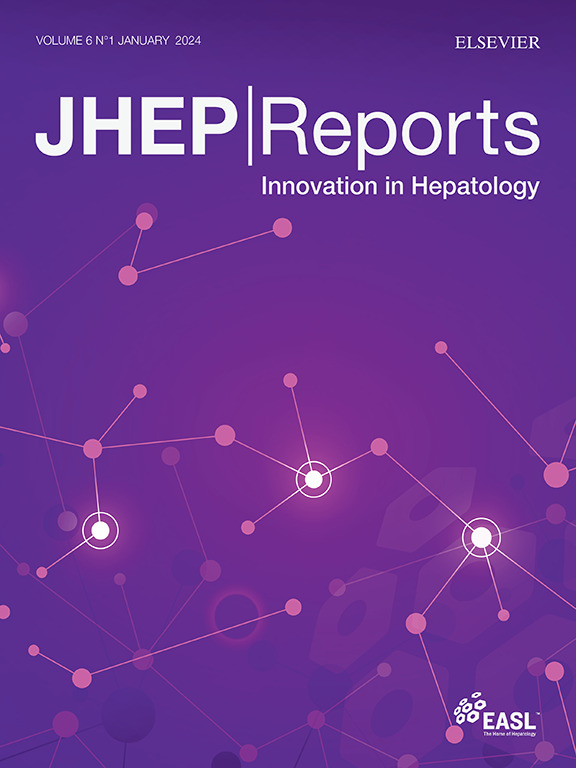Inflammation in MASLD progression and cancer
IF 7.5
1区 医学
Q1 GASTROENTEROLOGY & HEPATOLOGY
引用次数: 0
Abstract
Steatotic liver diseases include metabolic dysfunction-associated steatotic liver disease (MASLD), alcohol-associated liver disease, and metabolic dysfunction and alcohol-related liver disease (MetALD), encompassing a spectrum of metabolic liver disorders that range from steatosis to steatohepatitis, cirrhosis, and hepatocellular carcinoma. Steatotic liver disease is primarily driven by alcohol consumption and metabolic dysfunction, making it the leading cause of chronic liver disease. Steatosis is defined by excessive fat accumulation in the liver without significant liver injury or inflammation. In contrast, inflammation is the predominant factor that drives the progression of steatosis to steatohepatitis and, ultimately, to cancer. In this review, we summarise the current understanding of the inflammatory mechanisms underlying the pathogenesis of MASLD and explore molecular targets that may offer the potential for pharmacological intervention. Additionally, given the pathological similarities between MASLD and MetALD, relevant inflammatory pathways in MetALD are briefly discussed to underscore both commonalities and key distinctions between the two conditions.

炎症在MASLD进展和癌症
脂肪变性肝病包括代谢功能障碍相关的脂肪变性肝病(MASLD)、酒精相关肝病、代谢功能障碍和酒精相关肝病(MetALD),包括从脂肪变性到脂肪性肝炎、肝硬化和肝细胞癌的一系列代谢性肝脏疾病。脂肪变性肝病主要由饮酒和代谢功能障碍引起,是慢性肝病的主要原因。脂肪变性的定义是肝脏中脂肪堆积过多,但没有明显的肝损伤或炎症。相反,炎症是导致脂肪变性发展为脂肪性肝炎并最终发展为癌症的主要因素。在这篇综述中,我们总结了目前对MASLD发病机制的理解,并探索了可能提供药物干预潜力的分子靶点。此外,鉴于MASLD和MetALD之间的病理相似性,本文简要讨论了MetALD的相关炎症途径,以强调两种疾病之间的共同点和关键区别。
本文章由计算机程序翻译,如有差异,请以英文原文为准。
求助全文
约1分钟内获得全文
求助全文
来源期刊

JHEP Reports
GASTROENTEROLOGY & HEPATOLOGY-
CiteScore
12.40
自引率
2.40%
发文量
161
审稿时长
36 days
期刊介绍:
JHEP Reports is an open access journal that is affiliated with the European Association for the Study of the Liver (EASL). It serves as a companion journal to the highly respected Journal of Hepatology.
The primary objective of JHEP Reports is to publish original papers and reviews that contribute to the advancement of knowledge in the field of liver diseases. The journal covers a wide range of topics, including basic, translational, and clinical research. It also focuses on global issues in hepatology, with particular emphasis on areas such as clinical trials, novel diagnostics, precision medicine and therapeutics, cancer research, cellular and molecular studies, artificial intelligence, microbiome research, epidemiology, and cutting-edge technologies.
In summary, JHEP Reports is dedicated to promoting scientific discoveries and innovations in liver diseases through the publication of high-quality research papers and reviews covering various aspects of hepatology.
 求助内容:
求助内容: 应助结果提醒方式:
应助结果提醒方式:


